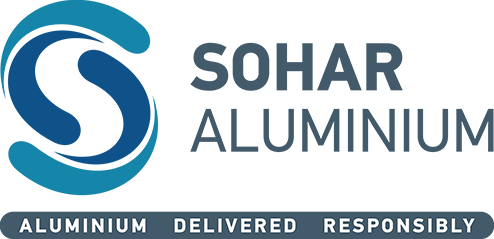Sohar Aluminium, Oman’s biggest non-hydrocarbon industrial venture, has approved plans for the implementation of a productivity optimisation project that will boost output by a significant 28,000 tonnes of primary aluminium annually. The so-called ‘Amperage Creep’ project is one of two important initiatives launched by the company with the aim of optimising energy efficiency and productivity at its giant smelter located in Sohar Industrial Area. The other initiative concerns a comprehensive revamp of the potline designed to achieve a reduction in energy consumption, according to a top official. “During the last two years, Sohar Aluminium (SA) initiated an upgrade of the pot lining, thereby opening new avenues in terms of current efficiency and operating amperage. The full deployment of these new state-of-the-art pots will be achieved by the end of the year. This will lead to new production levels for SA,” said Said Mohammed al Masoudi, CEO.
“The SA team will also optimise and improve the specific energy consumption of the potline to reduce our aluminium cost per tonne. Meanwhile, we will continue to explore all opportunities for growth, including asset expansion scenarios,” he further added. Last December, shareholders of Sohar Aluminium approved a significant investment to support an amperage creep project to reach an operating level of 400kA in the coming years and boost production of primary aluminium by an approximately 28,000 tonnes planned to be completed by 2019, Al Masoudi stated. Both projects are in line with Sohar Aluminium’s efforts to maintain its position as a benchmark for aluminium smelting operations around the world. The Oman plant’s Aluminium Pechiney technology (AP3X) is globally acclaimed as superior, environmentally friendly and energy-efficient.
Established in 2004, the $2.4 billion venture is the product of a partnership between Oman Oil Company (40 per cent), Abu Dhabi National Energy Company PJSC-TAQA (a subsidiary of Abu Dhabi Water and Electricity Authority) (40 per cent) and Rio Tinto Alcan, a global leader in aluminium. SA produces 375,000 tonnes of primary aluminium per year in the form of hot metal, ingots and sows from its world-class 1.2 km potline consisting of 360 pots using state-of-the-art Aluminium Pechiney technology (AP3X). The smelter itself is powered by a 1,000 MW combined-cycle captive power generation facility designed and built by Alstom and owned by Sohar Aluminium. Since it came on stream in June 2008, SA has been playing a pivotal role in the development of aluminium transformation industries in Sohar. The company has committed 60 per cent of its hot metal output for use by local downstream industries in the manufacture of a variety of aluminium-based products.
“The growth of a strong aluminium-based downstream cluster at Sohar is built on the foundation of SA providing molten aluminium to feed the downstream businesses. In the absence of SA, the economic and logistic challenges of importing liquid or solid aluminium to supply downstream businesses would make it very difficult for these businesses to sustainably grow in the long-term. SA will support the established downstream companies as they continue to grow while also looking to leverage the favourable business environment of Oman to attract new potential projects to the region,” said Al Masoudi. The biggest of the downstream ventures which depend on SA for its hot metal feedstock is Oman Aluminium Rolling Company LLC (OARC). Owned by Takamul Investment Company, which is itself a subsidiary of SA shareholder Oman Oil Company, OARC is designed to produce 160,000 tonnes of multi-purpose aluminium sheets which are to be sold in the local market and exported to the Middle East, Asia, Europe, Australia, North and South America.
Value-addition is also the objective behind a similar arrangement between SA and Oman Aluminium Processing Industries LLC (OAPIL), which utilises molten metal from the smelter to produce aluminium and alloy rods, as well as overhead transmission line conductors. OAPIL is a joint venture between Oman Cables Industry and Takamul Investment Company. The total production capacity of the OAPIL plant, which is also located in a downstream aluminium park adjacent to the smelter, is around 57,000 tonnes per annum of products. As one of Oman’s leading mega-projects, SA has successfully managed to leverage its investments and operations to make a profound impact on the local community. Of around 1,000 jobs created by the venture across its sprawling complex, approximately 71 per cent are held by Omanis hailing primarily from the Batinah belt. (OEPPA Business Development Dept).
Publication: Oman Observer

